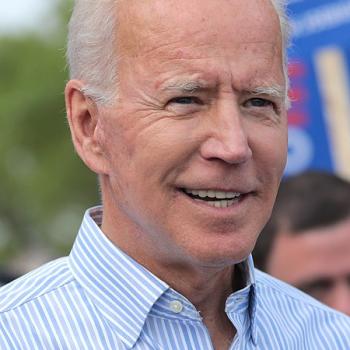A presidential election is no time to look for moral grounding and clarity. Well, it is, but don't look for it in the debates.
The debates that the election engenders are not focused on measuring the ethical complexity of the decisions that we face. They are even less well equipped to help Christians think in a subtle fashion about their moral obligations.
The speeches given both left and right are about marshalling support for a candidate—no more, no less. This is not only clear by the content of those speeches, the candidates' handlers tell us as much in no uncertain terms. The language of positioning and polling dominate what we are privileged to see and hear. As such the speeches caricature the opposition, demonize the opposing point of view, and ingratiate the candidate to voters. The terminology used, the themes that are emphasized are all tested ahead of time to assess its probable impact on you—and not in the name of virtue. They are designed to get you to drive to the polls and vote for their pol.
If you are looking for moments of careful deliberation, the willingness to grant that the opposition may have a point, or just a thoughtful assessment of the complexities, you are in for a long wait. If (on the other hand) you think that your favorite candidate has a lock on the one and only reasonable, moral position, you've been co-opted by the campaign managers.
If this were a passing temptation, if people were caught up in electoral debates over the space of a few months and then returned to their senses, it might not be so bad. But that's not the case. Politicking for president has become a non-stop, week in, week out, yearlong process. In a 24-hour news cycle with access to non-stop polling, every newspaper, radio, and television outlet now treats the chirping and muttering of politicians, their handlers, and surrogates as news that deserves coverage.
Speeches are treated with the gravity that was once assigned to legislation. Opinions are given the weight of major speeches. And polls are treated like events.
The other factor at work is money—lots of money. The presidency is bought and sold every four years and the people who are paying for it want their money's worth: the round office, the big chair, the inside track, and all the perks that go with it. They have it to spend and they soak up the energy of the body politic to score their points. The net result is a vast ocean of reporting that does little to illuminate either the moral decisions or practical considerations associated with governing the country.
For purposes of illustration I pulled up the leading editorials on Real Clear Politics this morning and the lead stories in the electronic version of The New York Times. You would expect Real Clear Politics to deal with politics, but look at how much of it deals with getting elected:
President Obama's Venture Socialism -- Sen. Jim DeMint, Washington Times
Five Prescriptions to Heal the U.S. Economy -- Laurence Kotlikoff, Bloomberg
Odds Favor GOP Gaining Senate Control -- Sean Trende, RealClearPolitics
Ronald Reagan & Real American Exceptionalism -- Governor Chris Christie
The GOP's Messiah Complex -- Michael Tomasky, The Daily Beast
What Putin Could Teach Republicans -- David Hill, The Hill
Perry, Gingrich & Bachmann Won't Be Nominee -- Joe Scarborough, Politico
Mitt Romney's Health Care Problem -- Ben Domenech, Red State
The Middle East's Dangerous Soap Opera -- Thomas Friedman, NY Times
Obama's Foreign Policy Failures -- Tony Blankley, Washington Times
Obama Speech to Black Caucus Missed Mark -- Doug Wilder, Politico
Blacks Leave Obama -- Dick Morris, The Hill
Traders Take More Risks than Psychopaths -- Alex Eichler, Huffington Post
ObamaCare: The Major Miscalculation -- Jonah Goldberg, Los Angeles Times
Obama Inspires, He Believes, He Rallies -- Ana Marie Cox, The Guardian
A Spectacularly Out of Touch President -- Nile Gardiner, Daily Telegraph





